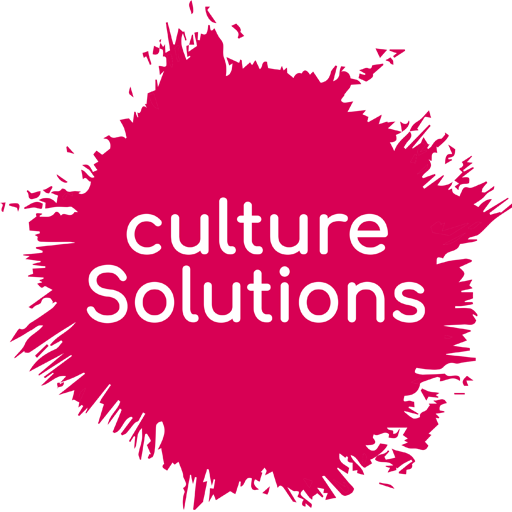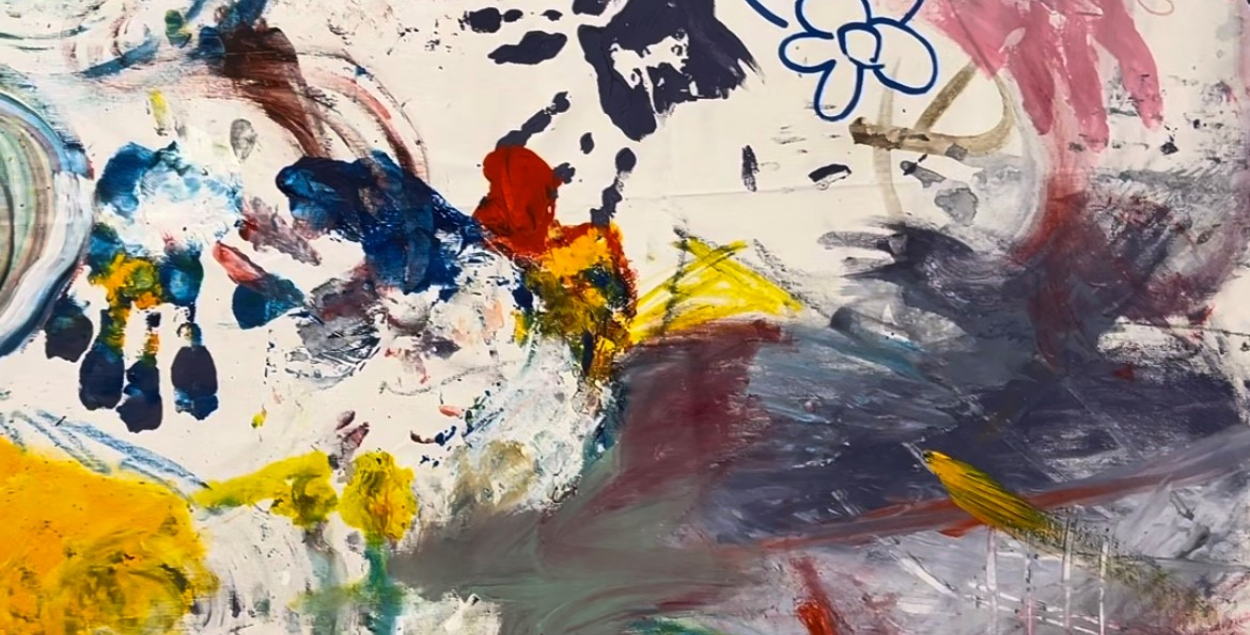cS internal dialogue #1: Democracy, elections and international cultural relations after 2024

By Celia Zayas, Elise Cuny, Felipe Basabe, Grégor Matti
This blog post reflects a collective discussion among culture Solutions’ members on the topics of democracy, elections, and International Cultural Relations (ICR) in 2024, summarising key ideas from our conversation on 23 October.
This article is intended to contribute to current discussions and reflections on International Cultural Relations, by examining how current political trends in the EU and the new global geopolitical context are impacting culture, and whether they can compromise its potential for promoting dialogue, understanding and democracy.
Little before the French Presidential elections, the French union for musicians published an editorial that stated that “the world of arts and culture […] exists through encounters with others, the discovery of differences, the expression of intimacy, while respecting identities and diversity”, and that opposed “the message of hatred and rejection embodied by the far right” (read the editorial signed by over 500 artists). In Germany, for a few months now, several cultural venues have been mobilising to warn of the dangers of budget cuts to the sector and to society as a whole, especially for independent artists (German Federal Budget Cuts Threaten to Halve Funding for Independent Art). What is happening? How come the full political spectrum has not yet realised the vital role played by culture and art in our democracies?
Although artists’ involvement in elections and electoral campaigns is not a new phenomenon, recent shifts highlight a growing sense of urgency.
For these French artists, elections now represent more than a choice between opposing political parties; they have become battles between fundamental principles such as freedom versus hate, diversity versus exclusion, and democracy versus authoritarianism. The concern that the free artistic and cultural space is threatened by political changes transcends France, and Europe. Trump’s re-election may have come as a cold shower for some, but this should not blind us to the democratic decline in Europe. With Melloni in Italy and Orbán in Hungary, for some years already, the recent victory of far-right political parties in the Netherlands and Romania does not brighten the picture. The 2024 Democracy Report of the V-Dem Institute reminds us that since 2009, “the share of the world’s population living in autocratising countries has overshadowed the share living in democratising countries”, and that 71% of the world population lives in autocracies, compared to 50% in 2003. How is this threatening culture and what does it mean for International Cultural Relations?
cS internal dialogue suggests three lines of interpretation, three phenomena that are shaping ICR: dissociation, instrumentalisation, and marginalisation, and insists on the potential of ICR to overcome political divisive trends.
Dissociation: Policies detached from artists’ realities
We are seeing a progressive detachment of cultural policymakers and bureaucrats from artists and cultural practitioners, who feel increasingly sidelined by policies. Detachment between artists and policymakers is not new, historically placed in the demands for improving the legal status and working conditions of artists, partially echoed by the EU Framework for the social and professional situation of artists and workers in the Cultural and Creative Sectors. However, a new, deeper kind of detachment is happening.
Cultural practice and cultural policy seem to be driving apart in their rhythms, needs and priorities. While the cultural sector demands artistic freedom, community-driven work and flexibility, cultural policy often focuses on broader political objectives (digitalisation, sustainability or economic development), or promotes nationalistic, limiting cultural narratives that go against our increasingly diverse European societies. Similarly, EU and national cultural policies do not effectively address funding inequities and regional imbalances, leaving most of the cultural sector, organised in small artistic collectives or solo artists, struggling to adapt and to develop their career. This growing mismatch risks marginalising diverse cultural expressions and undermining the inclusivity and vibrancy that policies aim to promote.
All of this has significant implications for International Cultural Relations, where this phenomena is maximised. EU ICR seems to be increasingly far from local artists’ realities, it becomes unable to address the sector’s needs and, thus, provides no incentive for transnational cultural action. This undermines the potential of cultural exchange to foster mutual understanding and collaboration across borders, and diminishes the credibility and effectiveness of cultural relations as a tool for building bridges in polarising times.
Instrumentalisation: Culture for…
Culture is increasingly seen as a tool, rather than of value in itself. On the one hand, culture is often portrayed through its economic and employment opportunities, through digitalisation or democracy or through art-facilitated processes for achieving social change as set by political objectives. Although the potential of culture as a catalyst for societal change is undeniable, this contains an inherent risk of limiting and constraining artistic creation, as culture is not valued in itself, and available funding is strongly tied to these new priorities, thwarting efforts to measure long-term cultural impact and to consider culture in its own right.
Limits to freedom of expression and artistic freedom are also coming from the political arena. We see a growing concerning trend related to the manipulation of freedom of expression that accommodates to electoral purposes, and that, in some cases, is translated into what some have called cultural censorship (Spain, Germany). This situation has recently been denounced in an open letter to the European Parliament, signed by 200 artists, and, previously, by IETM and Culture Action Europe.
Cultural Heritage is one of the main targets of instrumentalisation, used to construct and spread nationalistic narratives through a selective, non-inclusive use of cultural heritage that dismisses those cultural goods that prove a past of interculturality, solidarity and interconnectedness. This tendency jeopardises the potential of ICR to foster dialogue, mutual respect, and peace through artists’ creations and interactions, transforming it into a battlefield of opposing nationalistic narratives, with negative implications for artistic freedom and collaboration, and goes against the efforts to qualify culture as a common good across societies and peoples.
Marginalisation: Culture off the table
The nature and essence of culture and art makes it difficult to be backed by data feeding into policy-readable indicators. This lack of data deters funders and policy makers to “take a risk” and see beyond quantifiable and short-term results. The current trend risks reducing funding and resources, which could have an enormous impact on the sector.
Indeed, fewer resources for culture in Europe will not only affect European artists and practitioners, but will have global repercussions in current artistic exchanges with African, Latin American and Asian artists through EU or Member States’ cultural diplomacy or cultural cooperation, especially with regards to low-income countries that lack public resources for culture and arts. Although current development and diplomatic practices should not be exempt from critical analysis, they are a source of training, funding, and professional development opportunities inspiring Europeans and their fellow artists.
Charting a path forward
- People to People: the essence of ICR
ICR is best defined through people-to-people artistic encounters and approaches, leveraging culture’s potential for genuine human connections, shared knowledge and tolerance. This approach counters the effects of pervasive nationalistic narratives, and a way forward to reduce hostility, combat prejudice, and polarisation.
- Culture as a common public good
In 2023, the EU Ministers of Culture’s Cáceres Declaration emerged as a milestone that called for the recognition of culture as a “common and essential public good”, at the highest political level, considering that it is a right of citizens. In a similar fashion, UNESCO is calling for the recognition of culture as a stand-alone SDG, requiring further protection and resources and the connection with human rights.
Although operational developments have so far been limited, the initiative receives support from international cultural organisations under the campaign Culture 2030 Goal, which expands its aim and proposes mainstreaming culture in strategic agreements such as the UN Pact for the Future, or assessing culture in the Voluntary National Reviews (VNRs) that assess national efforts for delivering on the 2030 Agenda. The upcoming MONDIACULT Conference 2025 will provide momentum for discussions on the post-2030 scenario and might already serve as a pivotal platform to consolidate these efforts.
- Dare to take up the philosophical discussion, and act
Policies, projects and actions are always based on ideas, and ideas are what we need. Theories and debates will matter to counter instrumentalisation and dissociation of culture, and to bring culture closer to the public’s imagination. More discussions will be needed to define, understand and recognise the intrinsic value of culture, to create adequate impact assessment fit for this intrinsic value and to rethink how culture operates across borders as a shared space for genuine exchange, mutual enrichment and collaborative action against global challenges.
International cultural relations thrive on recognising and respecting this intrinsic value of culture. When cultural exchanges are rooted in authentic appreciation and respect, they foster trust, solidarity, and deeper connections between societies. They move beyond transactional or representational purposes to support equitable partnerships and shared progress. In this way, addressing questions about culture’s essence and purpose becomes not just a theoretical exercise, but a foundational step toward reshaping how nations and communities engage with one another.
Having this conversation, and taking these actions, is the only way towards a sustained development of the cultural sector that is, at once, meaningful for artists and practitioners, policymakers, and society at large, and that can ensure that cultural advances human rights, including cultural rights, and builds resilient international networks that are a force for global justice, sustainability, and unity. Having these actions with non-EU partners will also be essential in maintaining International Cultural Relations and people-to-people exchanges to nurture the EU’s external relations.
The views expressed in this article are personal and are not the official position of culture Solutions as an organisation.
Photo credit: Elena Poljuha, Tura Kultura, 2024. Painting made within the framework of an artivist workshop whose purpose was to bring politics closer to young people. Part of the European Parliament’s Changemakers Exhibition: Artivism for democracy.

